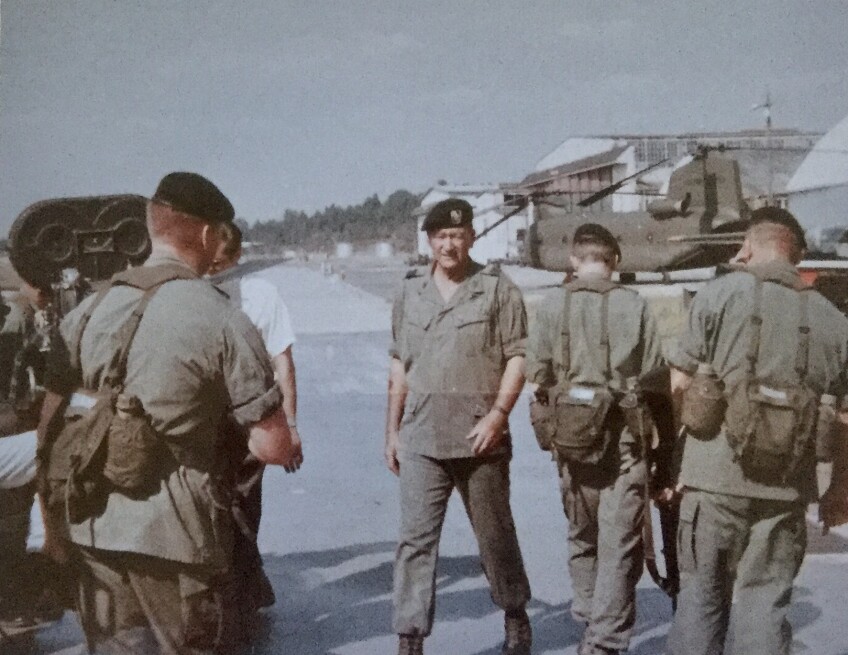A military re-assignment turns into a life-long passion
The Vietnam War shaped many young lives—the lives of those who fought in it, protested against it, lost a family member because of it, or watched as their parents fretted about it. (To say nothing of the impacts that have rippled through each generation since the war.)
Laguna Niguel resident Barton Mac Leod’s life was greatly impacted not by the war itself, but his absence from it.
When Mac Leod was 20, he emigrated from Ireland to the United States, settling in Philadelphia with distant relatives. Within weeks—in early 1965—he visited a recruiting office to sign up for military service. It may be hard to imagine having just moved to a country and signing up almost immediately to serve, but Mac Leod attributes the decision to how he spent his formative years.
“I think it’s because of my background, being away at boarding school, at a boys’ school, it gave you that military, so-called background, you could say—independence. So, it was an easy transition for me, coming from that environment and then entering in the service.”

In other words, he was looking for the rigorous discipline expected of the boys at the Royal School Dungannon in County Tyrone where he was educated. So, he went to Aviation School in Fort Eustis, Virginia, followed by a year of service in Germany as a Senior Crew Chief after which he volunteered and was approved to serve in Vietnam.
“I was very adventurous and I wanted to get in some combat time,” Mac Leod said. “I had this certain drive, where when something comes available, I go for it. … It was a no-brainer, of course my mother was upset.”
Mac Leod left Germany for Fort Ord in Monterey from where he was supposed to leave for Vietnam. But, the plans changed. The Army re-assigned Mac Leod to Fort Benning where he served as Aide to the Commander.
And it’s here, unexpectedly stationed in Fort Benning, Georgia, that Mac Leod gets his first taste of the American entertainment industry. As Aide to the Commander at Fort Benning, Mac Leod had access to the entire base, and was responsible for incoming and outgoing aircraft at the airfield (for example chartered planes). So, when Hollywood arrived—in the form of John Wayne filming The Green Berets—Mac Leod, already on set by the nature of his job, picked up his camera and photographed the process, ultimately earning him a still photographer credit on the film.

“They were gonna have me actually in the movie, but it wouldn’t be fitting to have an Irish accent … I’m ready for the scene and then they decided they couldn’t use me because when I talk—back then I had a heavy Irish accent and it made no sense to the movie.”






This experience on the set of The Green Berets opened doors for Mac Leod. When he left the military in 1971 he headed straight to Orange County where he got a job in finance and pursued work as a still photographer in the film industry on the side. In 2009 he transitioned to still photography full-time, though he has since retired.
“Because I worked with [John Wayne] and I got movie credit for it … the fact is it opened doors for me throughout my life beyond that point,” Mac Leod said. “So, I was disappointed, yes, I didn’t go to Vietnam, on the other hand it opened doors for me which wasn’t intentional, but it happened that way.”
